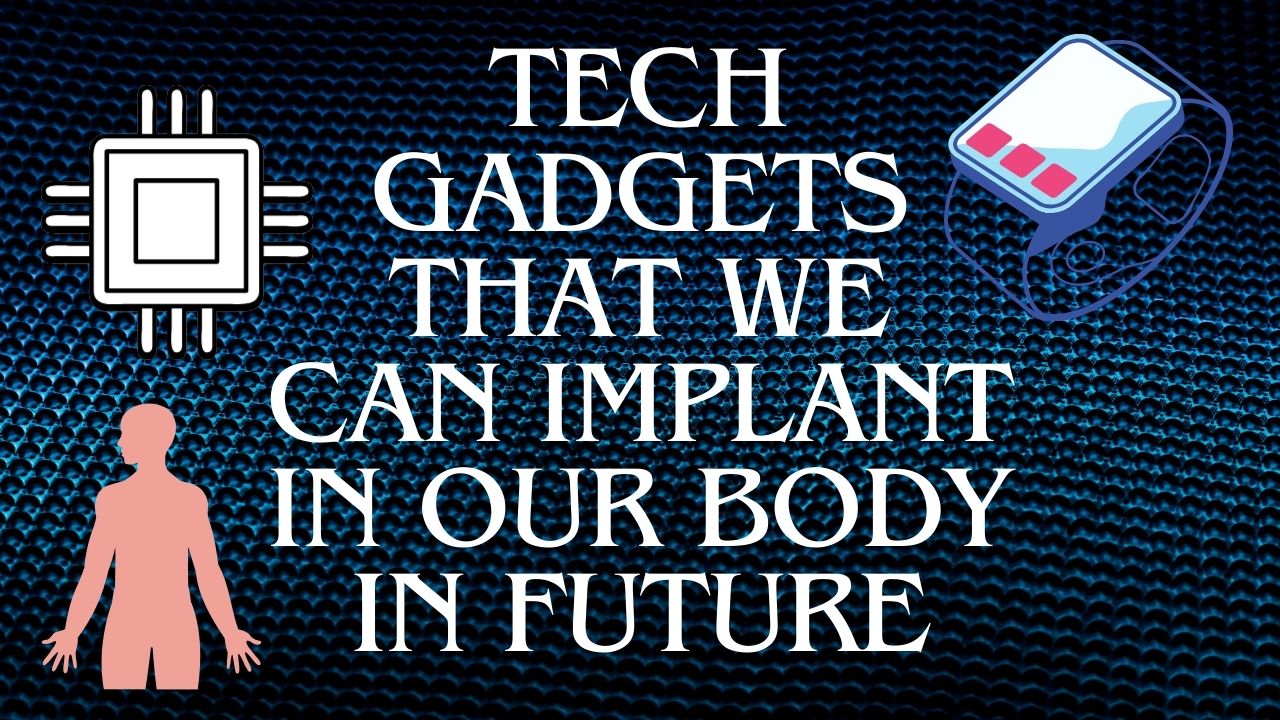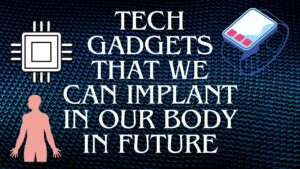Tech Gadgets , The year is 2024, and the line between technology and humanity is starting to blur. While the idea of inserting gadgets into our bodies might have seemed like science fiction just a few decades ago, the field of implantable technology is rapidly evolving, offering a glimpse into a future where technology becomes an extension of ourselves.
- Current State of Implantable Tech:
- Tech Gadgets-Potential Applications:
- Ethical Considerations:
- Tech Gadgets FAQ:
- Q: What exactly are implantable gadgets?
- Q: Sounds futuristic! Are there any real-world examples of these gadgets?
- Q: That's impressive! But what about more consumer-oriented uses?
- Q: This sounds convenient, but are there any safety concerns?
- Q: And what about the ethical implications?
- Q: So, is body tech the future, or is it just science fiction hype?
- The Road Ahead:
This info delves into the exciting yet thought-provoking world of implantable tech gadgets, exploring the current landscape, potential applications, and ethical considerations surrounding this emerging field.
Current State of Implantable Tech:
Implantable medical devices like pacemakers and cochlear implants have been around for decades, revolutionizing healthcare for millions. However, the recent advancements in miniaturization, biocompatibility, and wireless communication have opened doors for a new wave of implantable gadgets, venturing beyond solely medical applications.
Here are some exciting examples of Tech Gadgets what’s currently in development or already in use:
- Biometric sensors: Imagine tiny, implantable devices continuously monitoring your heart rate, blood pressure, and other vital signs, transmitting the data wirelessly to your smartphone or healthcare provider. This could enable proactive health management and early detection of potential issues.
- Brain-computer interfaces (BCIs): These fascinating devices allow direct communication between the brain and external devices. While still in their early stages, BCIs hold immense potential for applications like controlling prosthetic limbs or even enhancing cognitive abilities.
- Smart implants: These versatile gadgets can perform a variety of functions depending on their design. For example, implantable chips with near-field communication (NFC) capability could be used for secure access control, storing medical records, or even making contactless payments.
Tech Gadgets-Potential Applications:
The potential applications of implantable tech are vast and diverse, spanning across various fields:
- Healthcare: Continuous health monitoring, drug delivery, treatment of chronic conditions, and even personalized gene therapy are just a few possibilities.
- Enhanced communication: Imagine translating languages in real-time or directly controlling smart devices with your thoughts.
- Entertainment and fitness: Implantable gadgets could revolutionize the way we experience entertainment, offering immersive experiences or tailored fitness programs based on real-time physiological data.
Ethical Considerations:
While the potential benefits of implantable tech are undeniable, ethical considerations surrounding its use are paramount. Here are some key concerns that need careful discussion:
- Privacy and security: Implantable devices collecting and transmitting personal data raise significant privacy concerns. Robust security measures are crucial to prevent unauthorized access and misuse of sensitive information.
- Equity and accessibility: Ensuring equitable access to this technology for everyone, regardless of socioeconomic status, is vital to avoid exacerbating existing inequalities.
- Bodily autonomy and consent: The decision to implant a device should be made with full knowledge and informed consent, considering potential risks and long-term implications.
- Psychological impact and societal implications: The potential psychological and social impacts of relying on implanted technology need thorough exploration and ethical discourse.

Tech Gadgets FAQ:
Q: What exactly are implantable gadgets?
A: These are technological devices designed to be surgically inserted beneath the skin or within the body cavity. They can range from simple devices like biometric sensors that monitor vital signs to more complex gadgets like neural implants that interact directly with the nervous system.
Q: Sounds futuristic! Are there any real-world examples of these gadgets?
A: Absolutely! While still in their early stages, several implantable devices are already making waves in the medical field. For instance, cochlear implants have revolutionized the lives of individuals with hearing loss, restoring their ability to perceive sound. Similarly, pacemakers regulate irregular heartbeats, while deep brain stimulators offer hope in managing various neurological conditions like Parkinson’s disease.
Q: That’s impressive! But what about more consumer-oriented uses?
A: The potential applications extend far beyond medical uses. Imagine implantable health monitors that track your daily activity, sleep patterns, and even blood sugar levels in real-time, providing valuable insights into your overall well-being. Additionally, biometric identification implants could replace traditional passwords or keys, offering a more convenient and secure way to access devices or buildings.
Q: This sounds convenient, but are there any safety concerns?
A: As with any emerging technology, safety is of paramount importance. Concerns surrounding biocompatibility, the potential for device malfunction, and the risk of infection during implantation are significant considerations. Additionally, the long-term effects of having foreign objects permanently embedded within the body are still not fully understood.
Q: And what about the ethical implications?
A: The ethical considerations are equally crucial. Issues like data privacy, potential misuse of the collected information, and the possibility of creating a “digital divide” between those who can afford these enhancements and those who cannot, all need to be carefully addressed. The ethical implications of human augmentation also raise philosophical questions about the very definition of what it means to be human.
Q: So, is body tech the future, or is it just science fiction hype?
A: The future of body tech remains uncertain. While the potential benefits are undeniable, the challenges and ethical concerns cannot be ignored. It’s crucial to have open and transparent discussions involving scientists, ethicists, policymakers, and the public to ensure responsible development and deployment of this technology, if and when it becomes more prevalent.
The Road Ahead:
The field of implantable tech is still nascent, with numerous technical and ethical challenges to overcome. However, the potential benefits it offers across various sectors are undeniable. Open and transparent dialogue involving scientists, ethicists, policymakers, and the public is crucial to navigate the path forward responsibly and ensure this technology serves humanity for the greater good.
As we move towards a future where technology becomes increasingly integrated with our bodies, it’s important to remember that human values should remain at the forefront of technological development. By prioritizing ethical considerations and fostering responsible innovation, we can unlock the true potential of implantable tech while safeguarding the well-being and autonomy of individuals.









